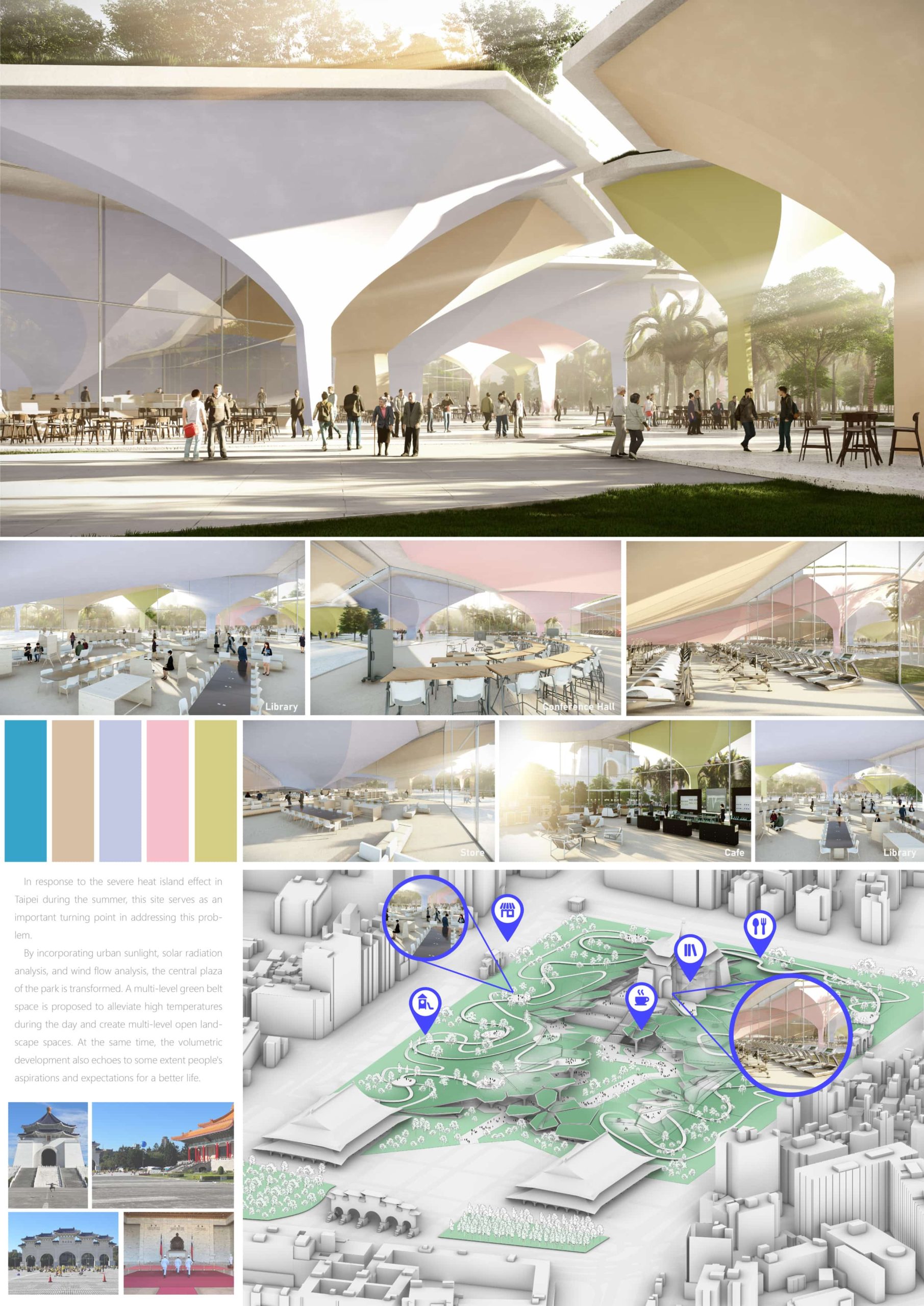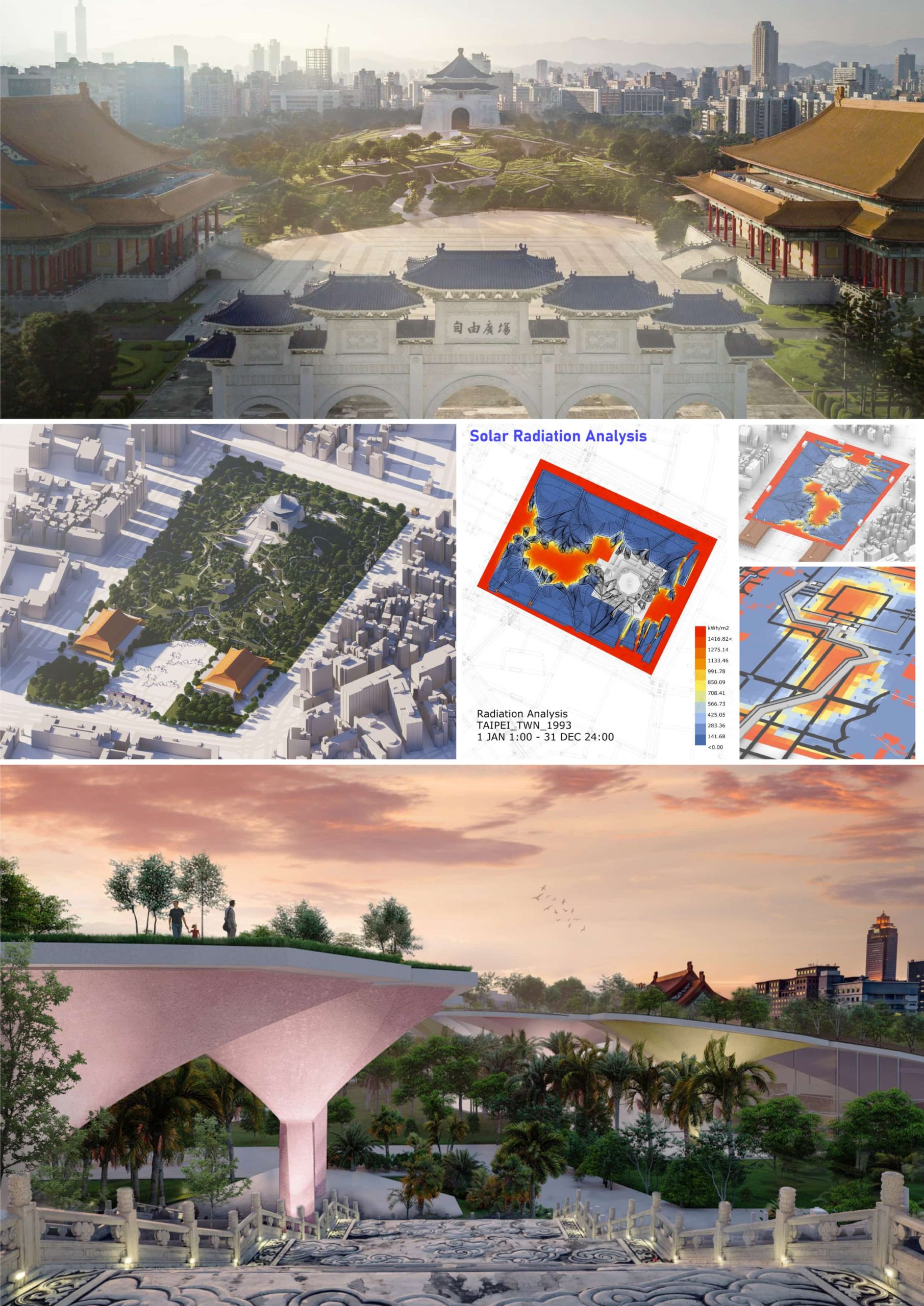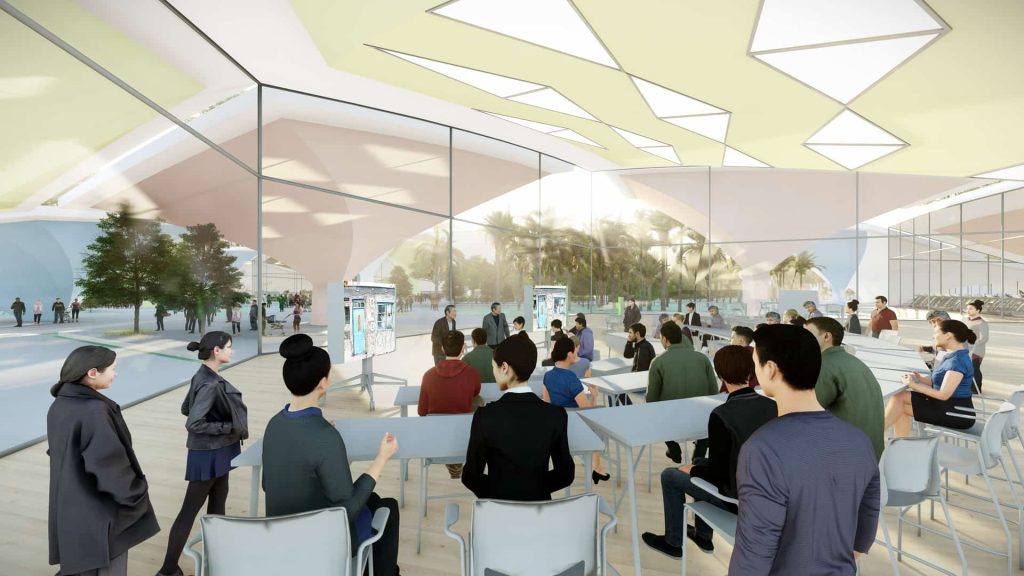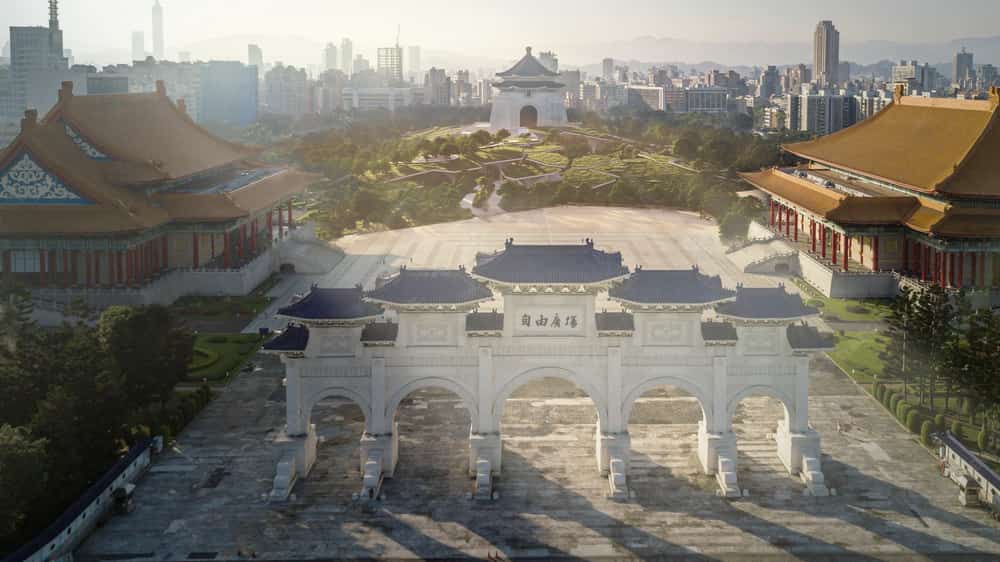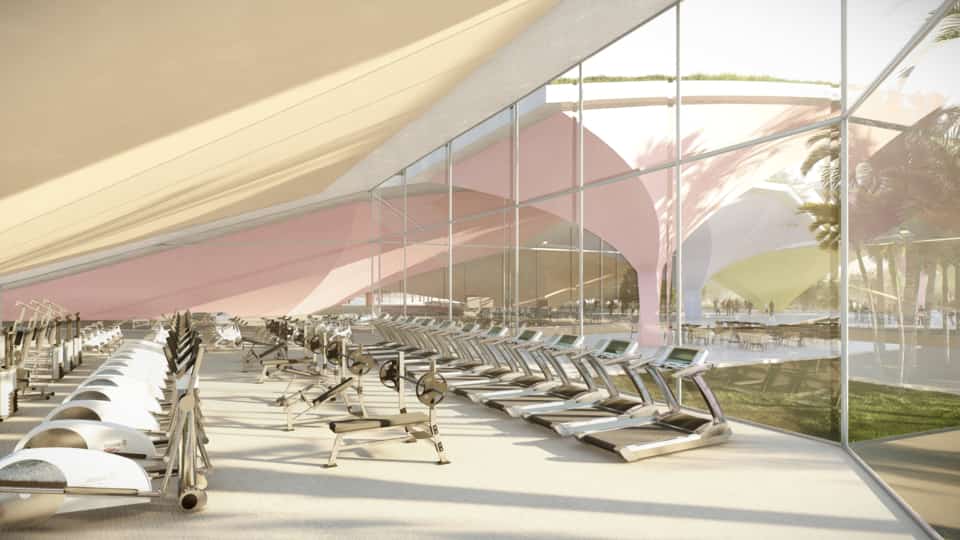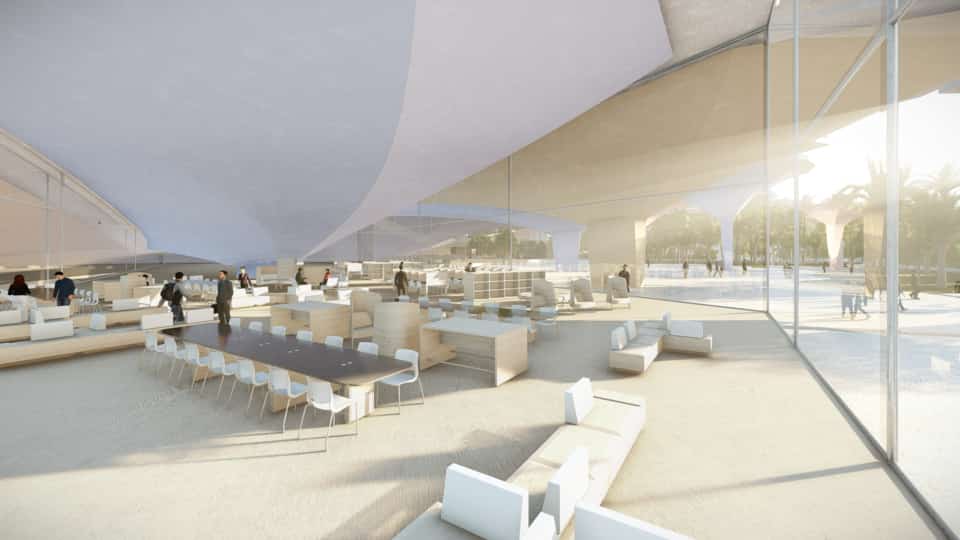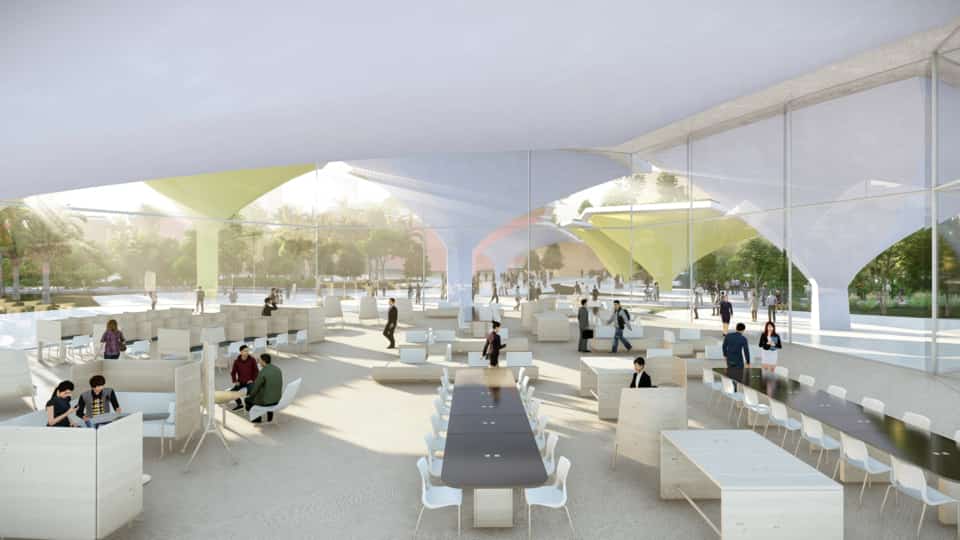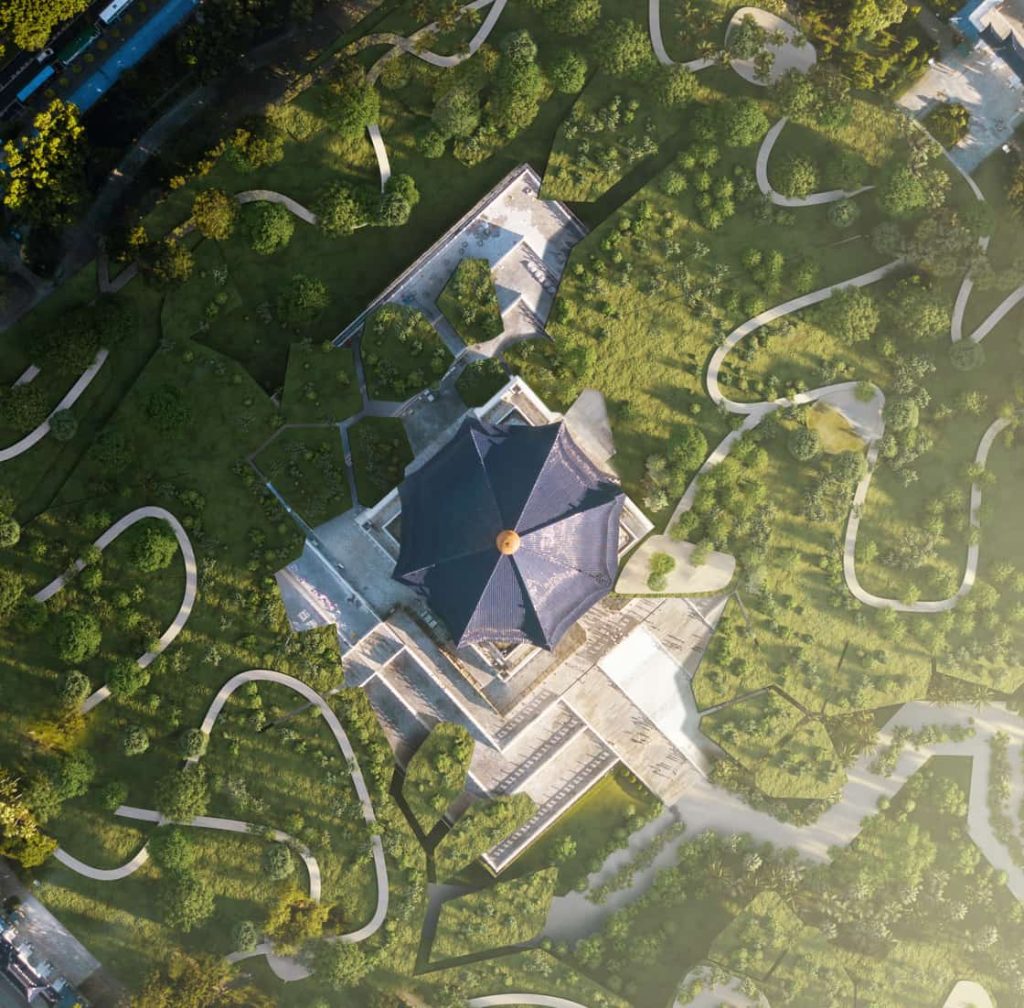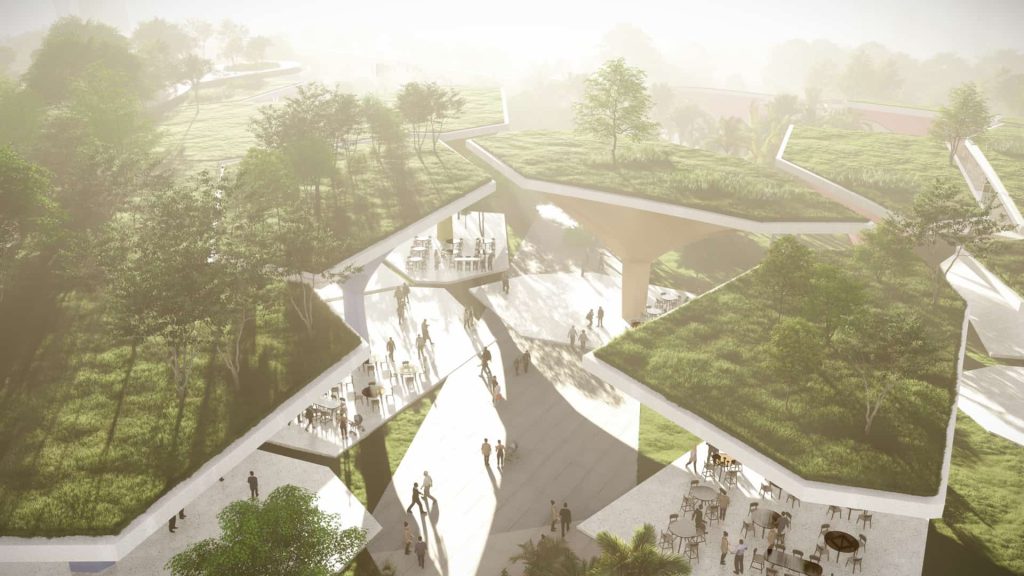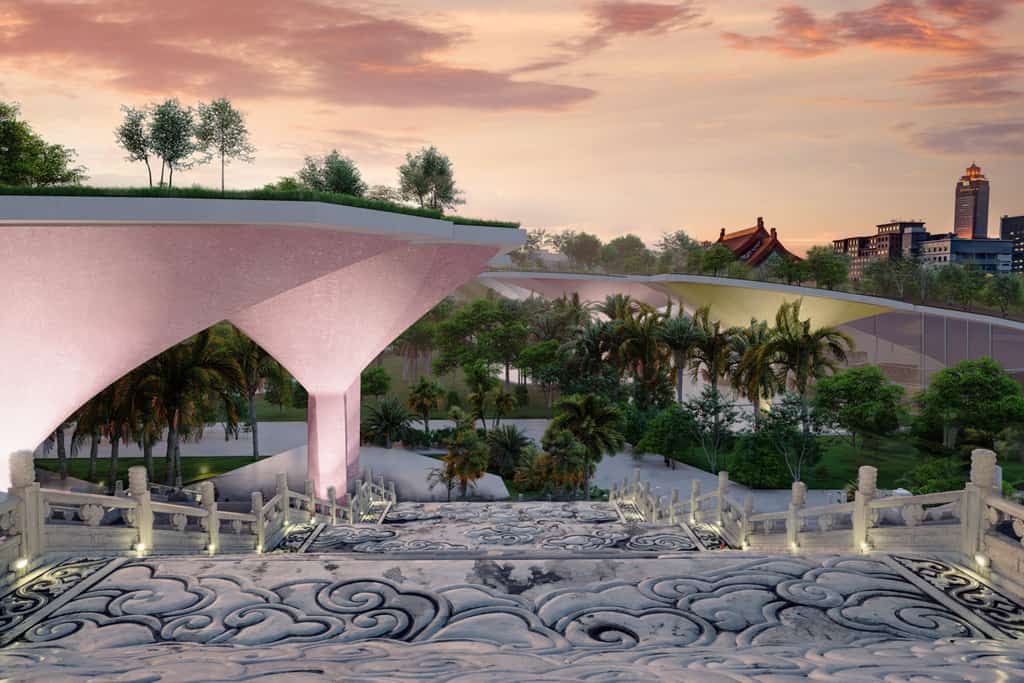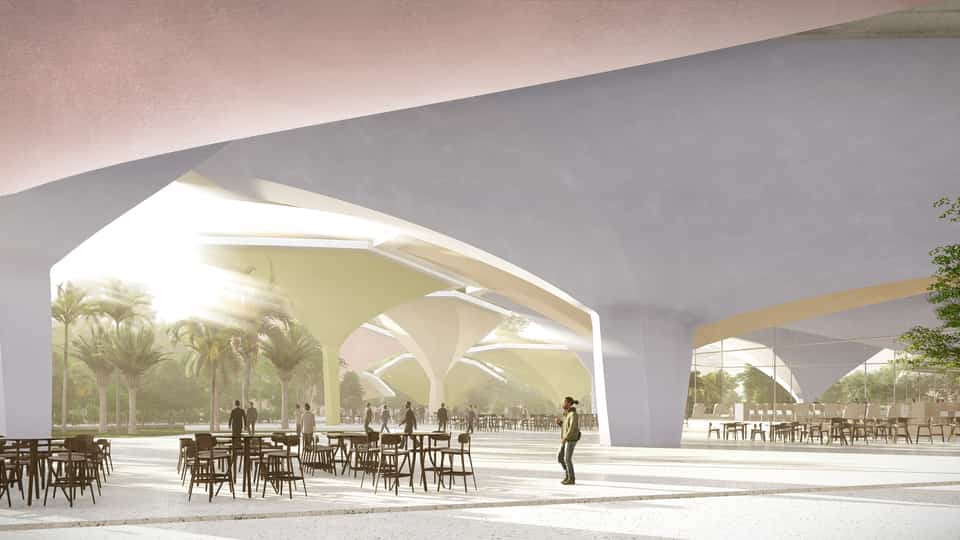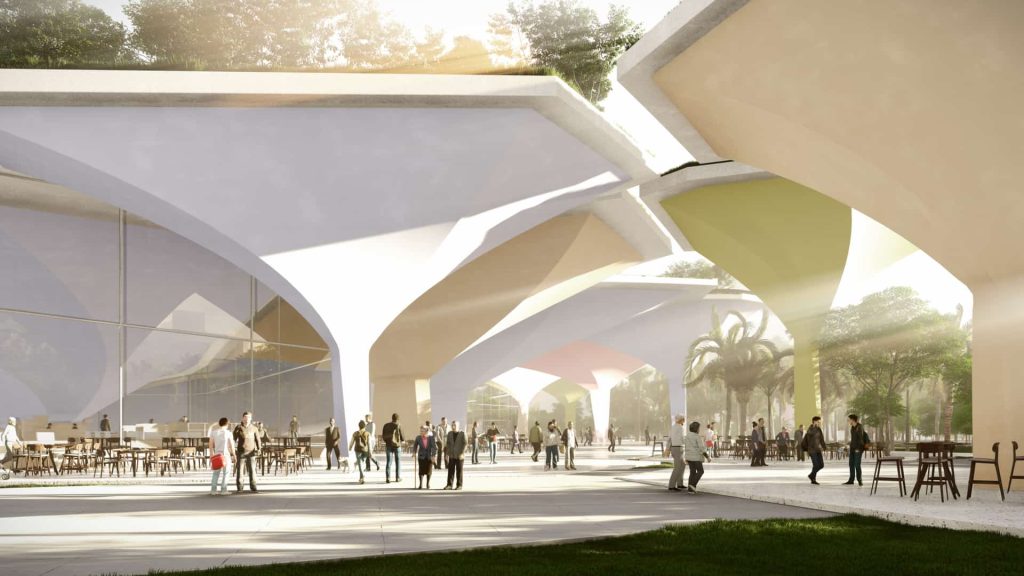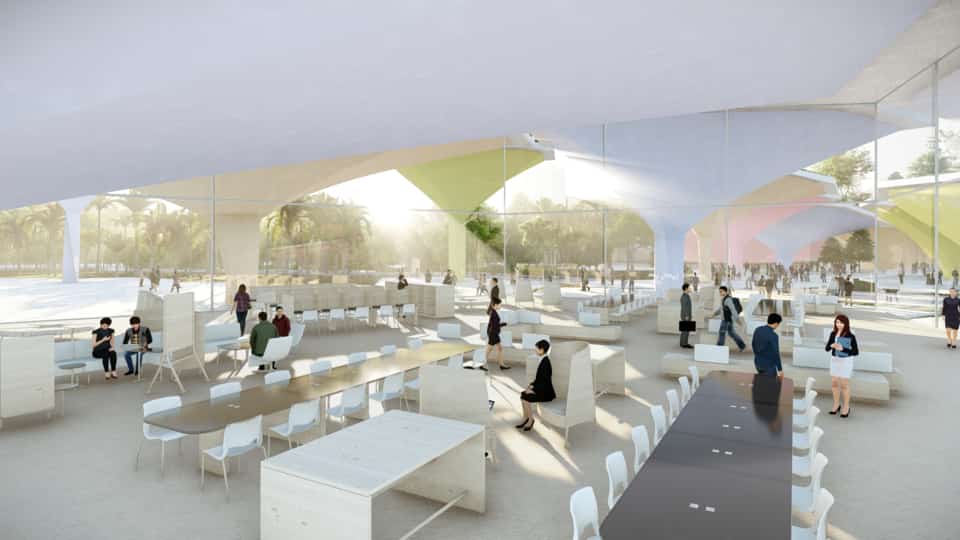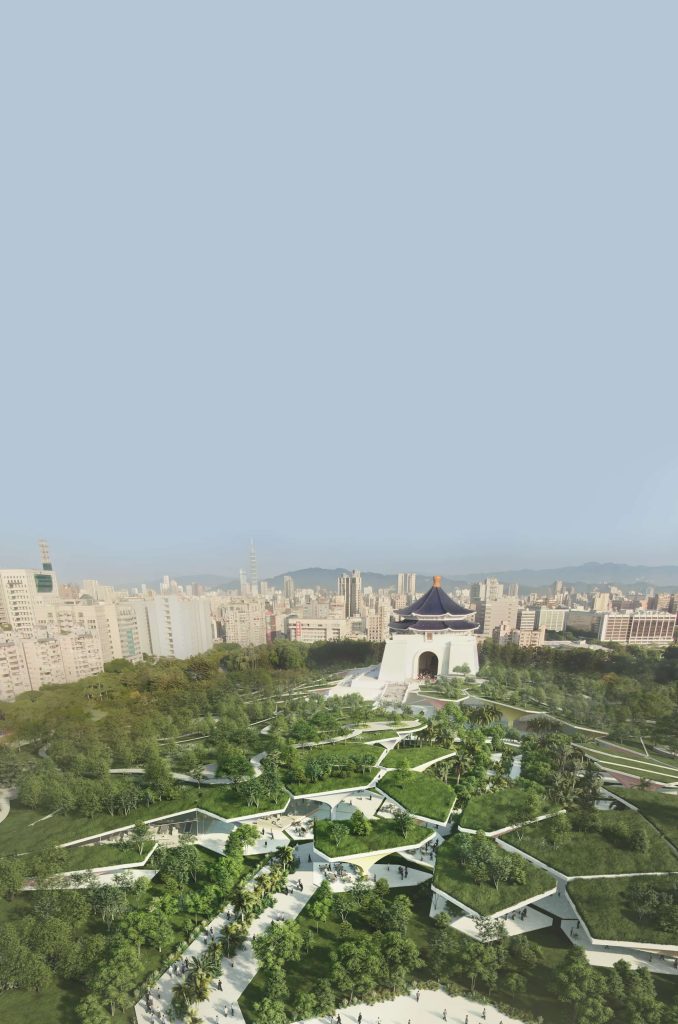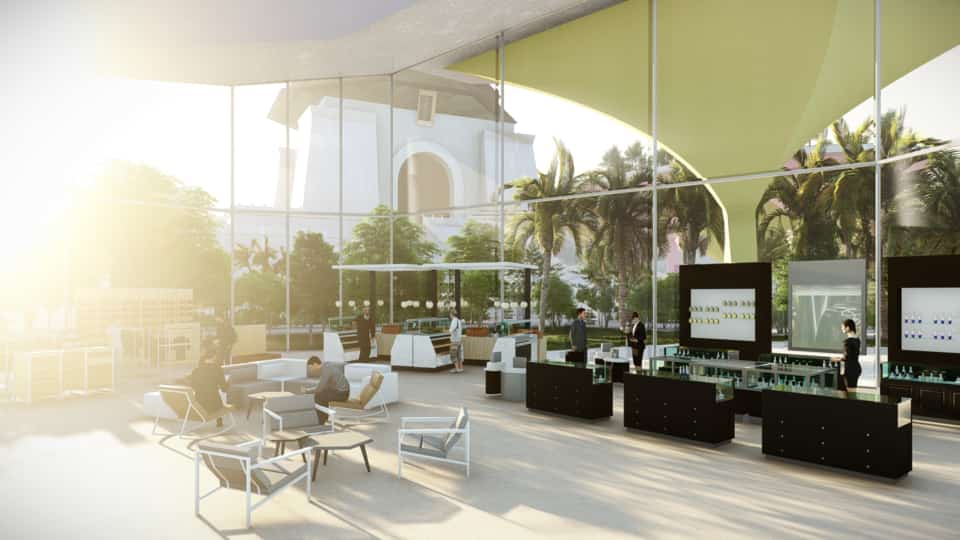Today, it seems a liberal and democratic society in Taiwan, but is it true?
Entering the Chiang Kai-shek Memorial Hall park, various everyday sounds reach our ears. However, these daily activities seem to be subject to invisible constraints, blocked from the Democracy Boulevard and only exist within the walls and gardens around the park. Are we still unconsciously bound by the authority of space?
The dead silence of Democracy Boulevard is in sharp contrast to the daily noise around it. The authority and monumentality in the space seem to have never disappeared. On this seemingly empty and peaceful avenue, many major events in the democratic process have occurred, witnessing the transformation of the Chiang Kai-shek Memorial Park from an authoritarian space only for commemoration into an important distribution center that can accommodate various activities and the people during the Anti-Japanese War. If sound is a representation of life, then the disappearance of sound implies death. The Democracy Boulevard where so many great events took place in the past are completely muted now, and the important moments that once took place are fading away. So in this memorial place, What else can we commemorate?
The sounds in the park vary in content depending on the era and background. When these historical slices are reproduced and re-superimposed in this field through sound, voices from different eras begin to create opportunities for dialogue. Guided by sound, you will roam in the space following the sound you want to hear, but you will also encounter other sounds along the way. While recording the various events that happened here, it also brings back the lost voices of the past to this site.
Try to imagine that in the dark space, the song in memory of Chiang Kai-shek slowly spreads. Walking along the long corridor, maybe at a corner you will hear countless young people shouting "Abolish the National Assembly". At the same time, the news of Chiang Kai-shek's death was also heard in the distance. After walking a few steps, you suddenly heard the laughing of children. What appeared after the sudden gunshot was a blank light box, a free space left for future sounds. The voices of people sitting on the grass penetrated to the Chiang Kai-shek bronze statue hall on the fourth floor. At this time, the turned statue also changed from a person in power giving orders to a listener.
History should not be forgotten. The value of the Chiang Kai-shek Memorial Park is not only to commemorate authoritarianism, but also not just to provide a place for daily activities of citizens. It carries the common memory of the Taiwanese people from the authoritarian past to the democracy of today. Perhaps we are at a junction of forgetfulness. If these sounds are forgotten, the remaining daily life will return this place to the original state of only one sound. Without the reference of the voices of the past, people will have no way of knowing how valuable freedom is today. If every era has a representative voice, then being filled with multiple voices at the same time is definitely a reflection of this era of peaceful dialogue. Thankfully, we can read history from a more comprehensive perspective today. While people find their own opinions on history, they may also understand that history is not as good or as bad as we believe. The history of the past, whether good or bad, is the nourishment that creates today. Only by understanding this can we truly let go of hatred and embrace the past.
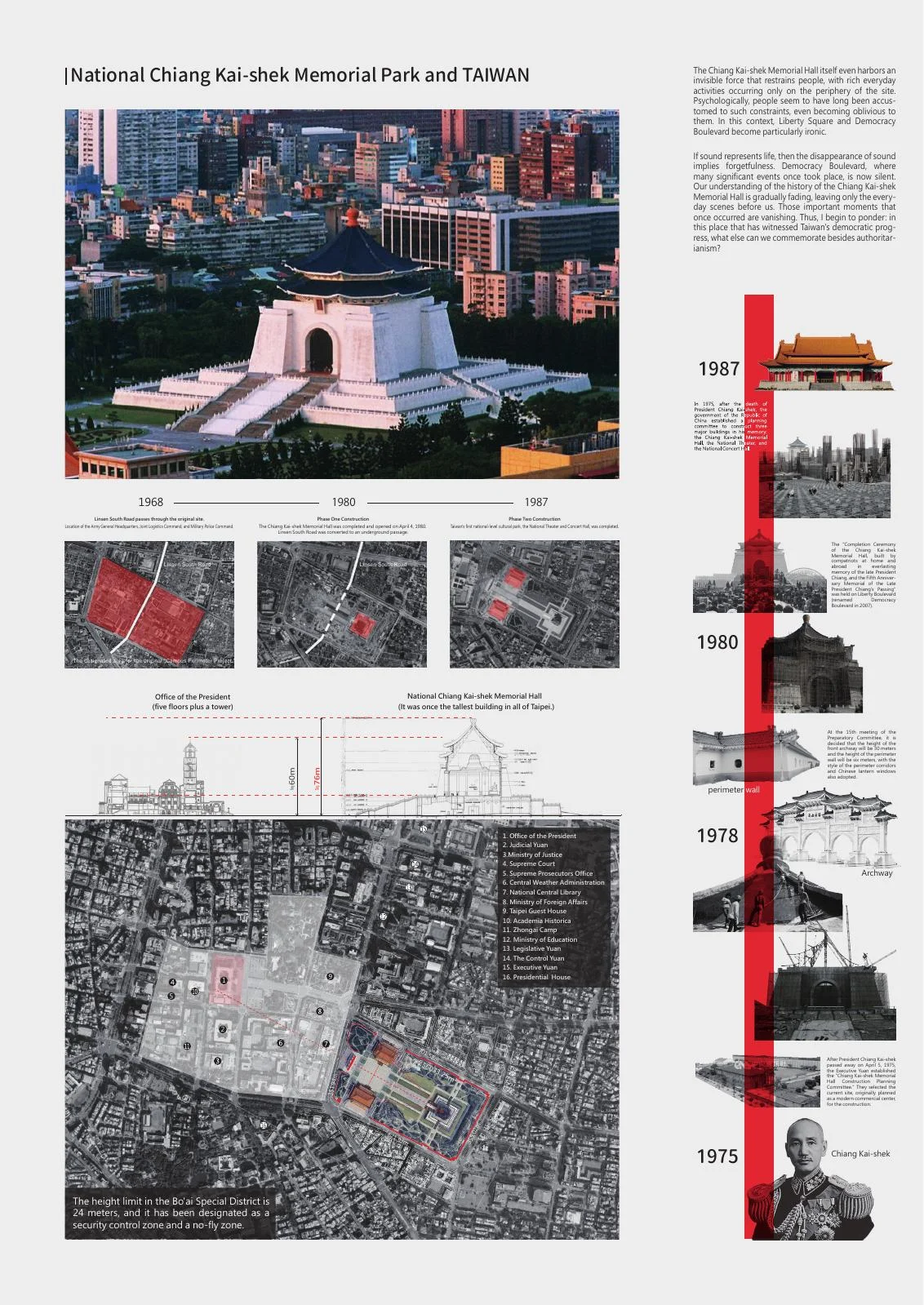
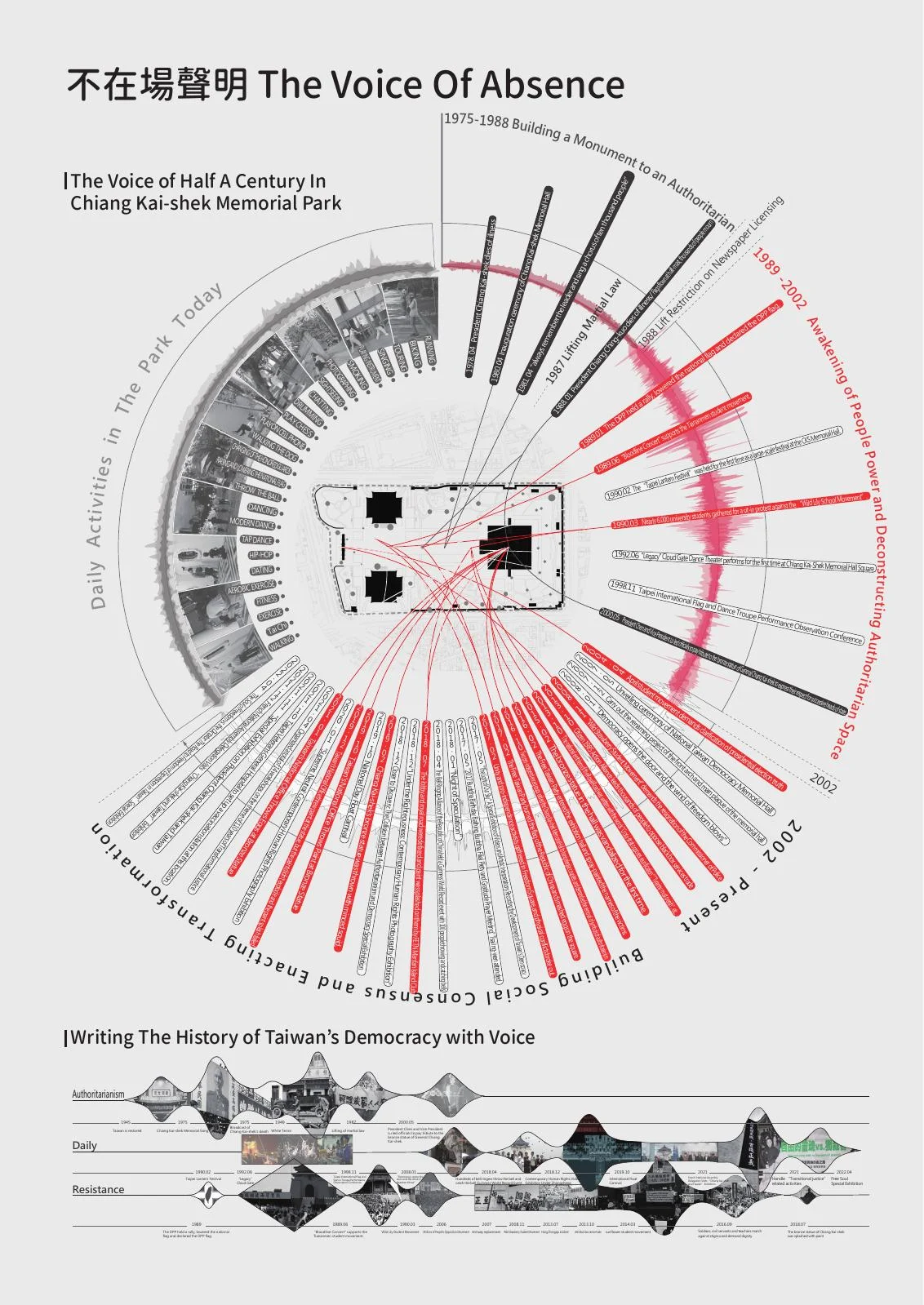
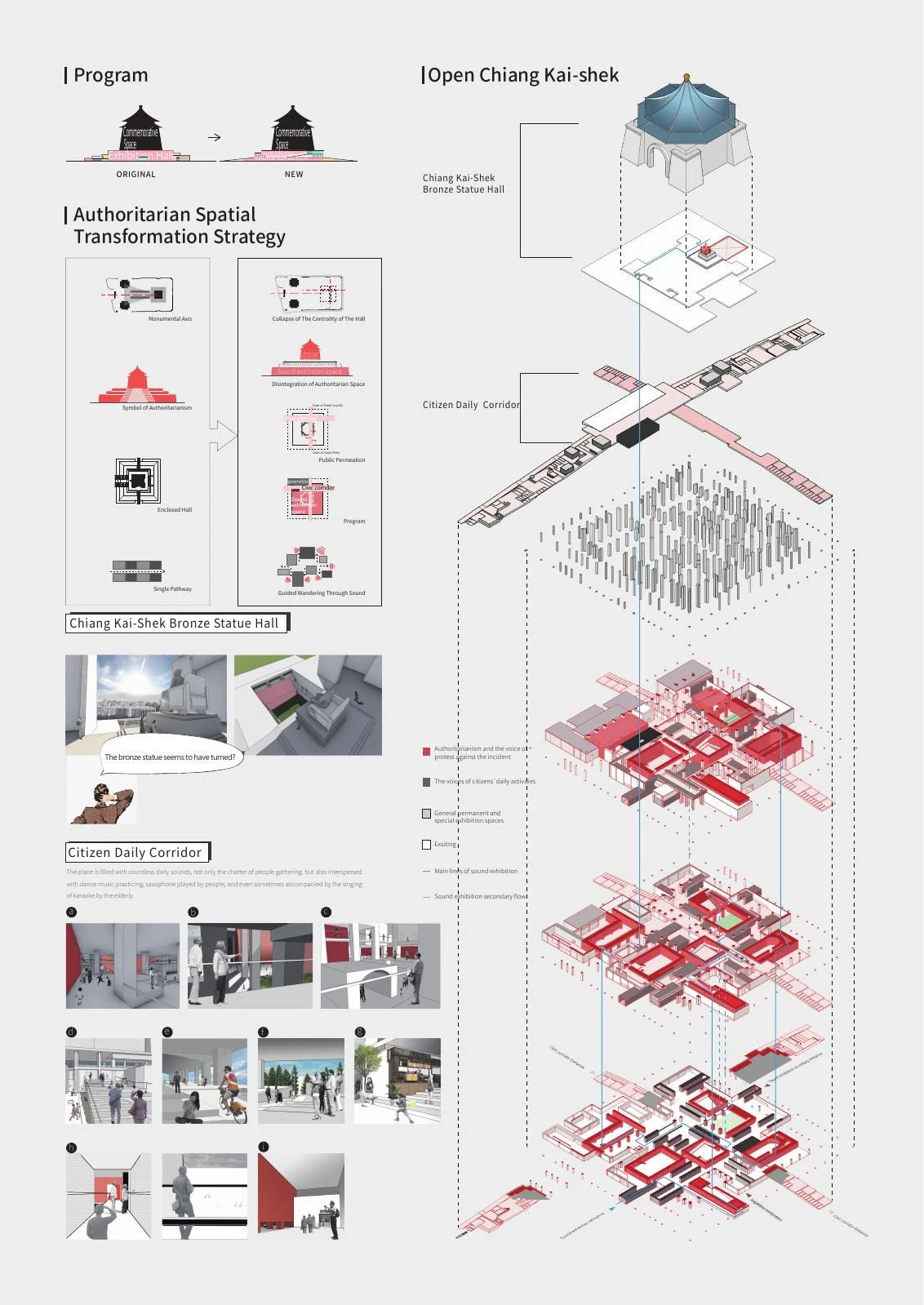
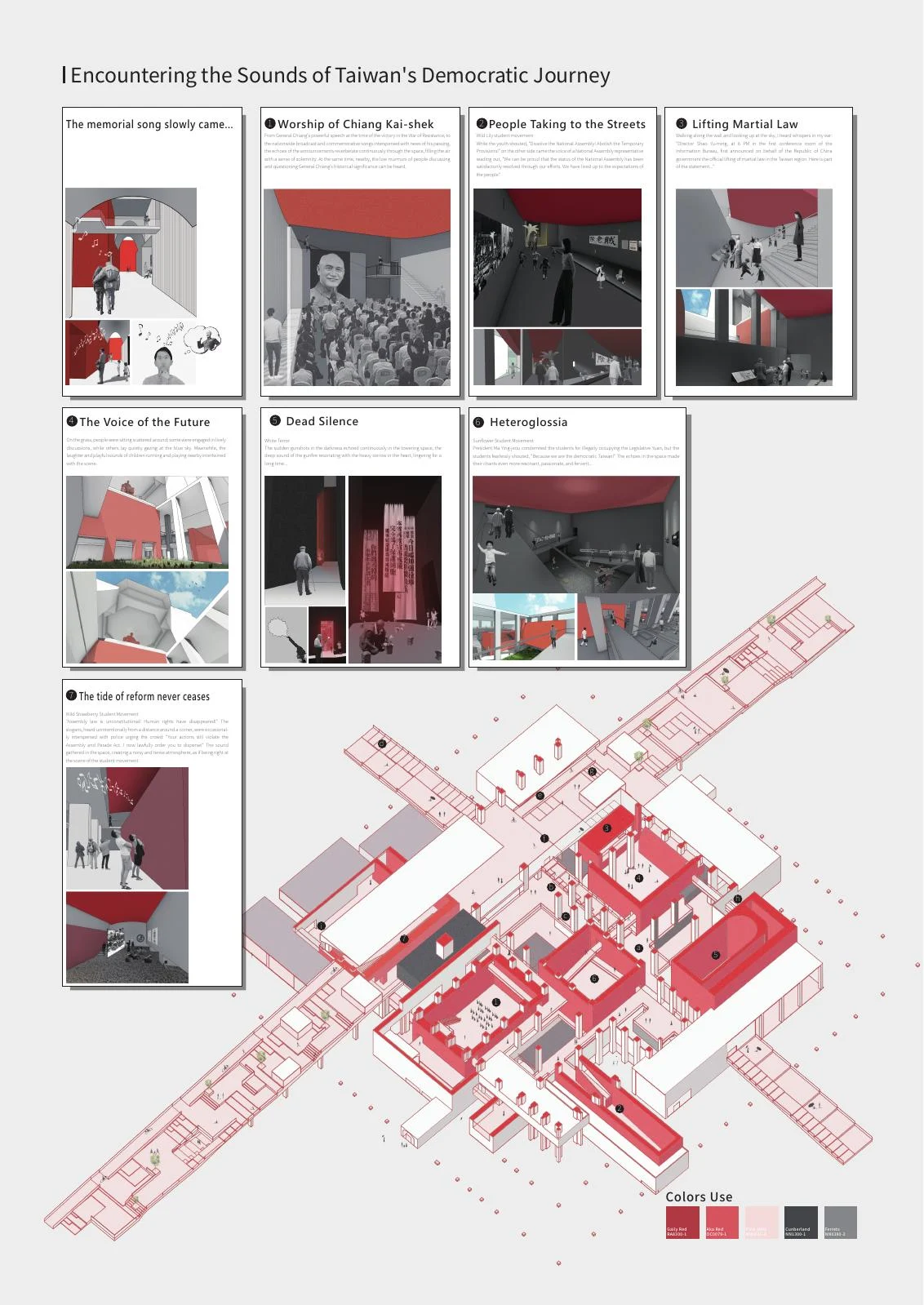
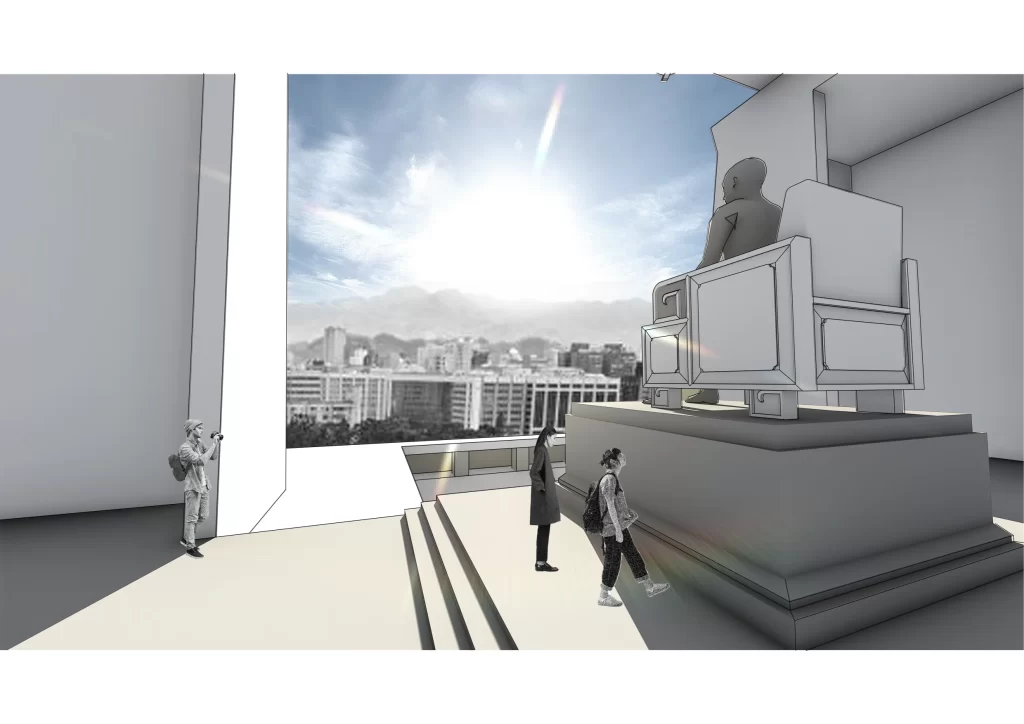
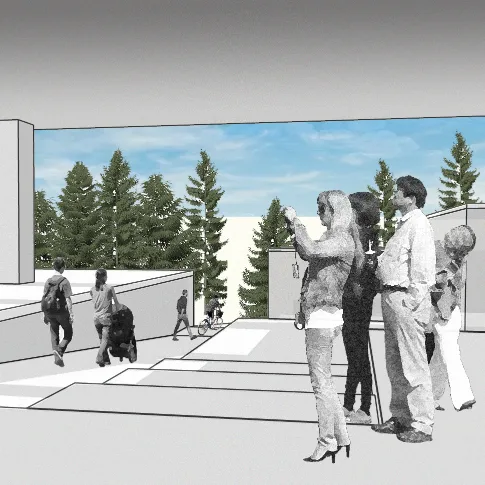
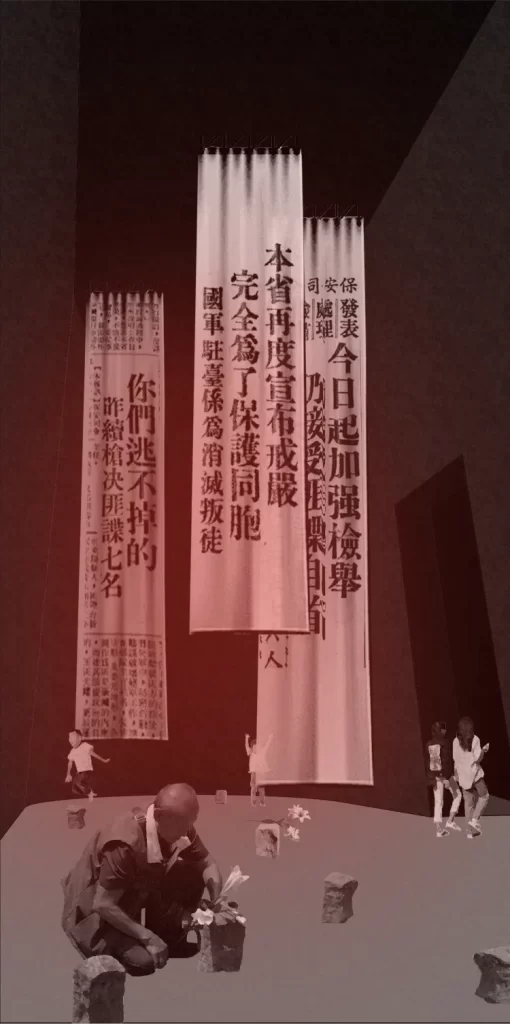
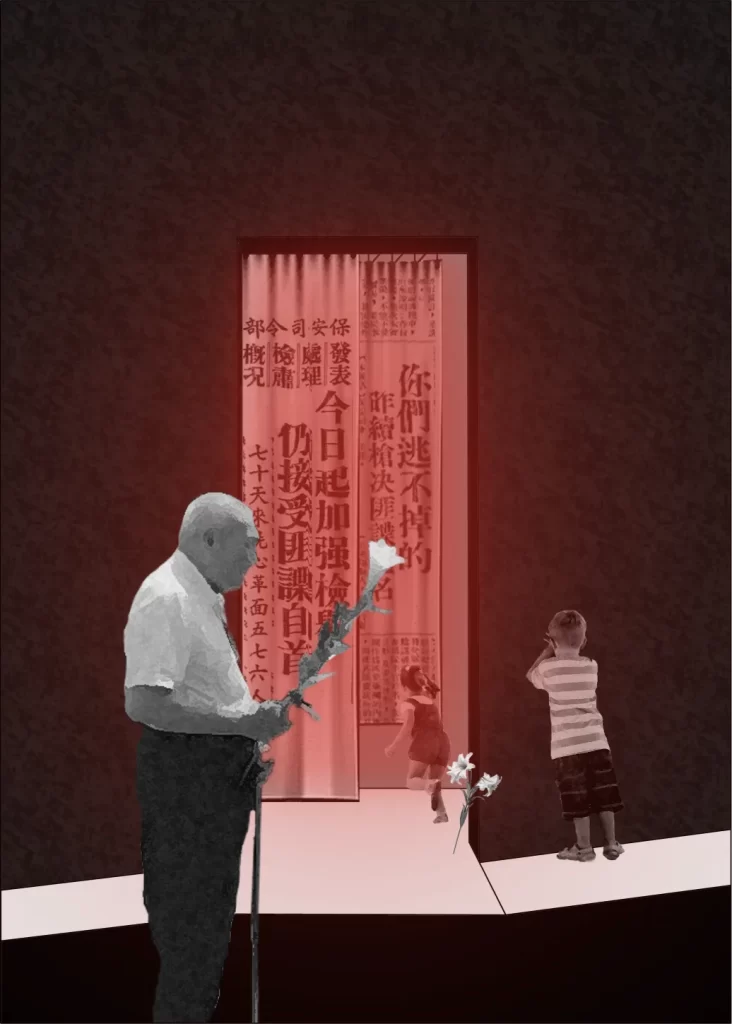
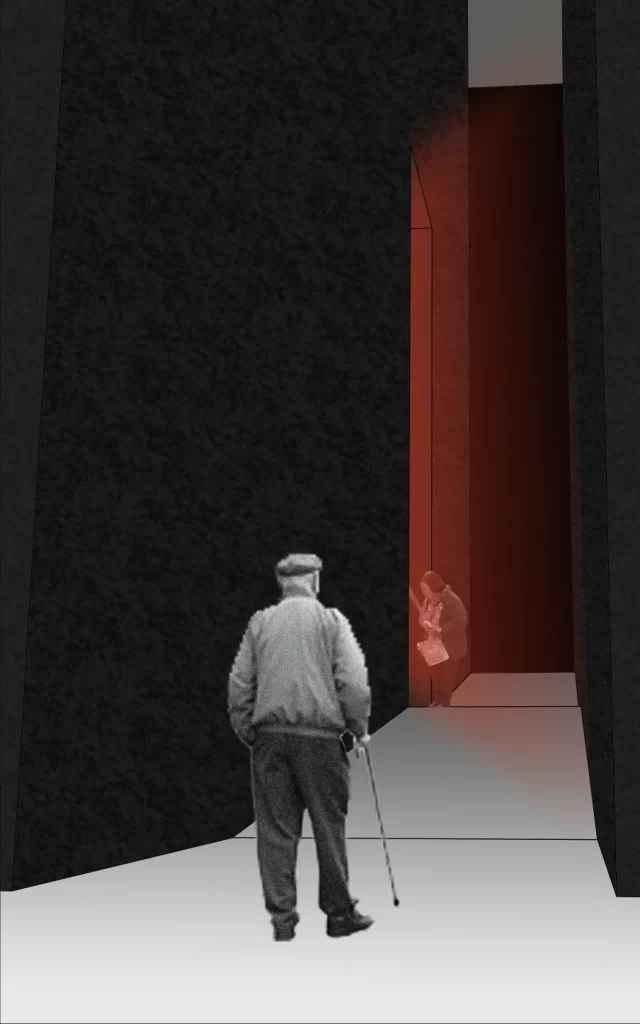
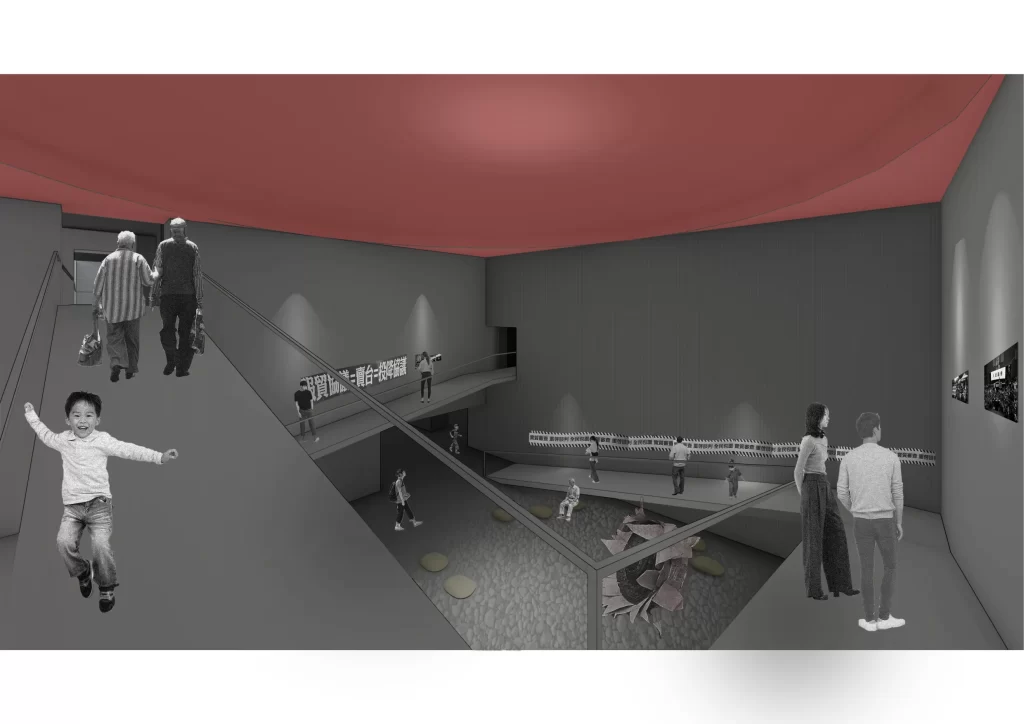
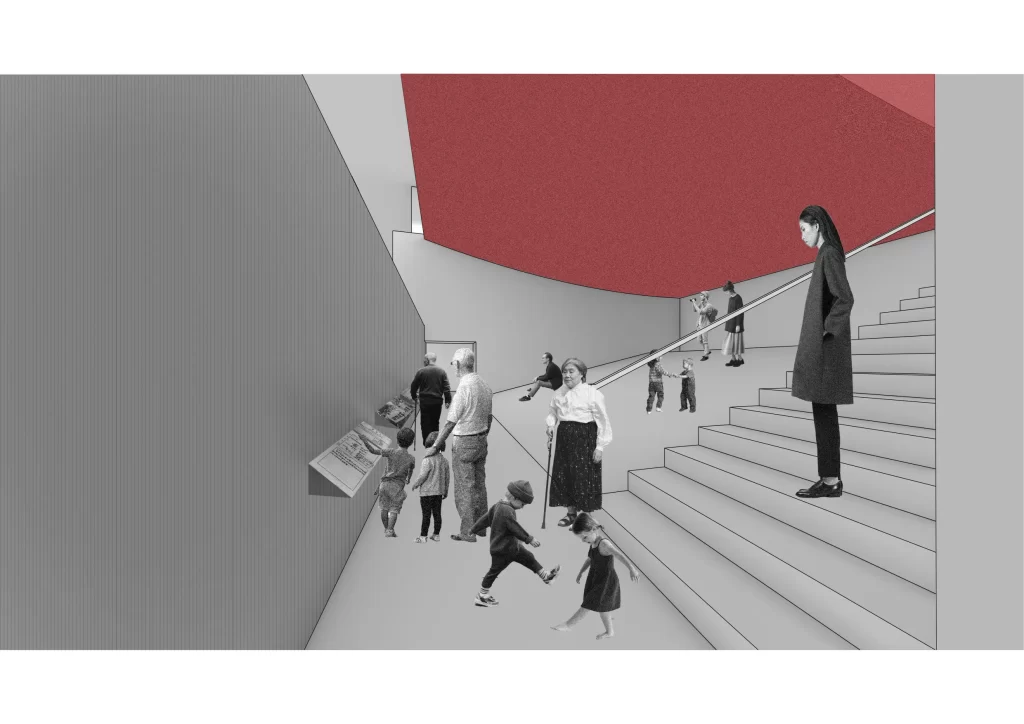
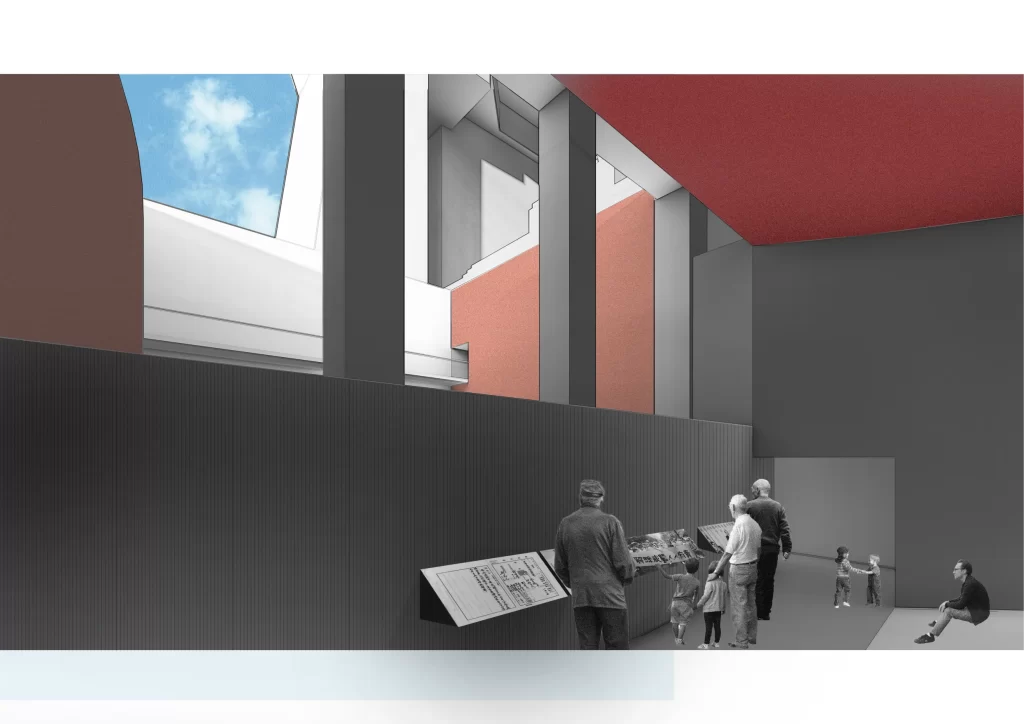
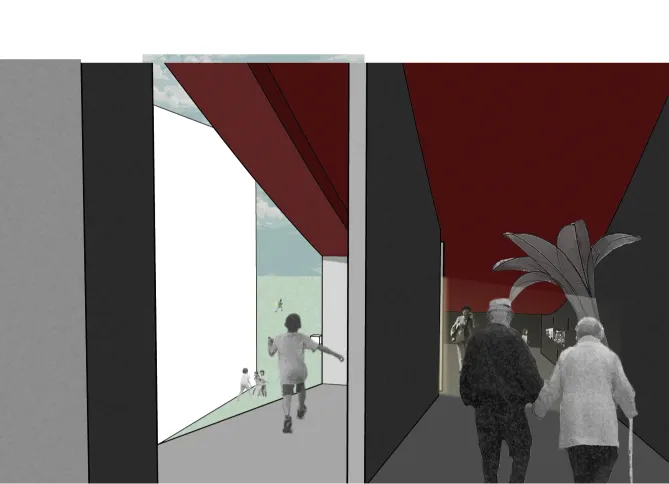
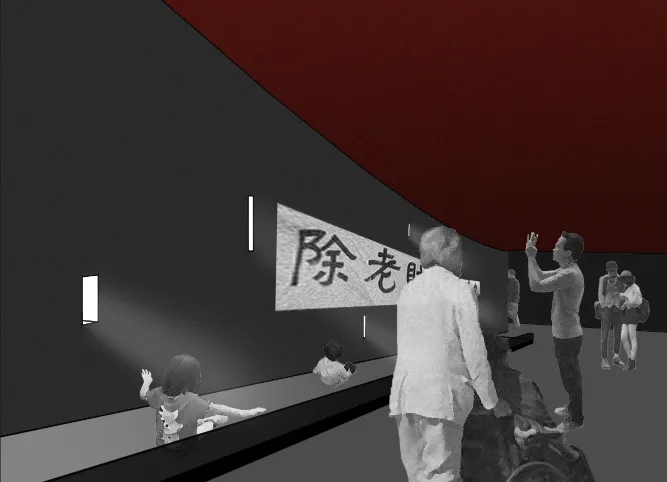
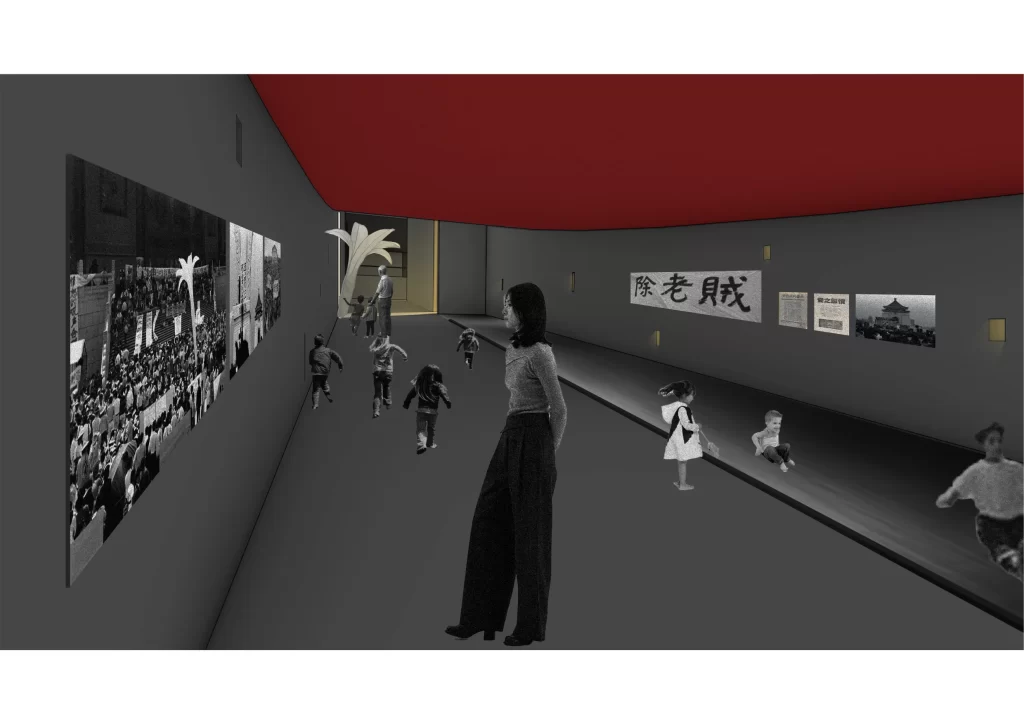
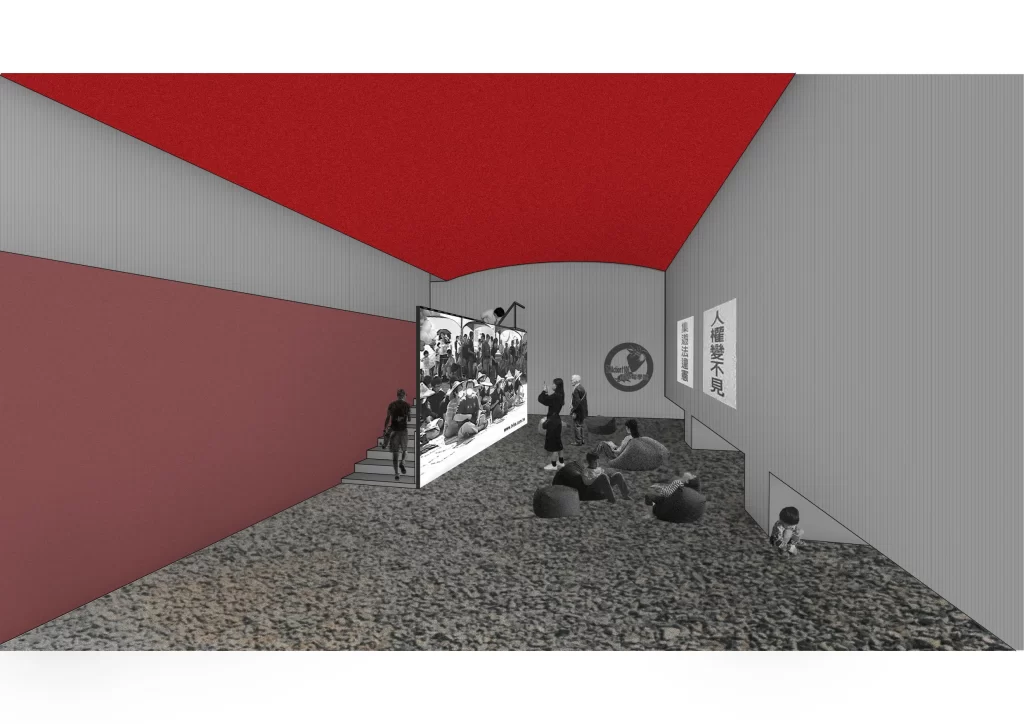
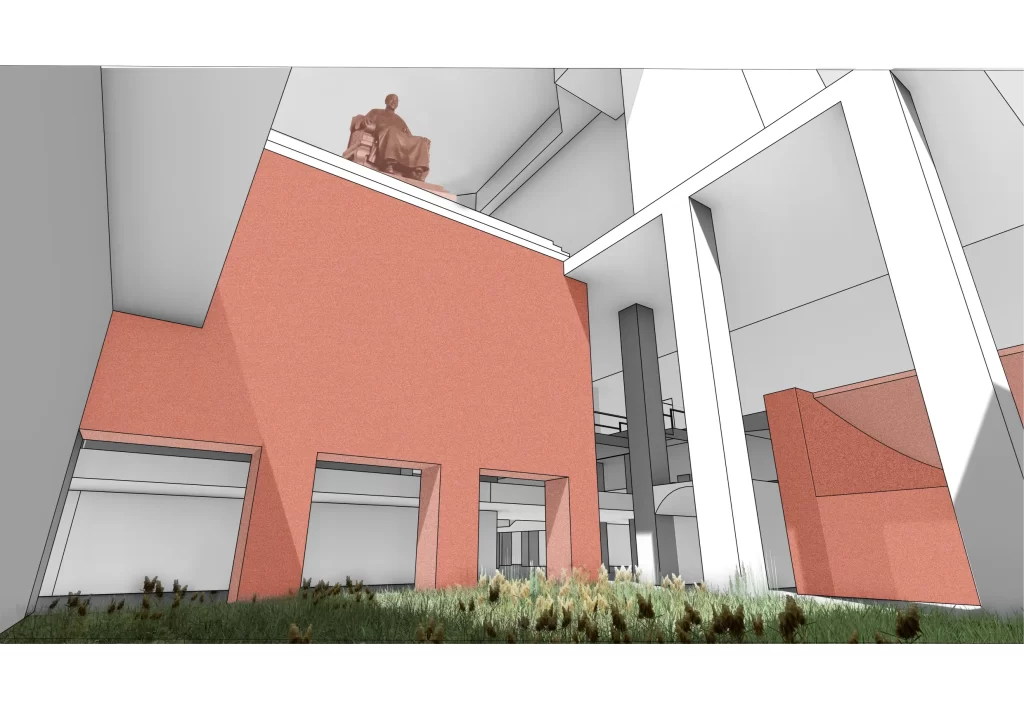
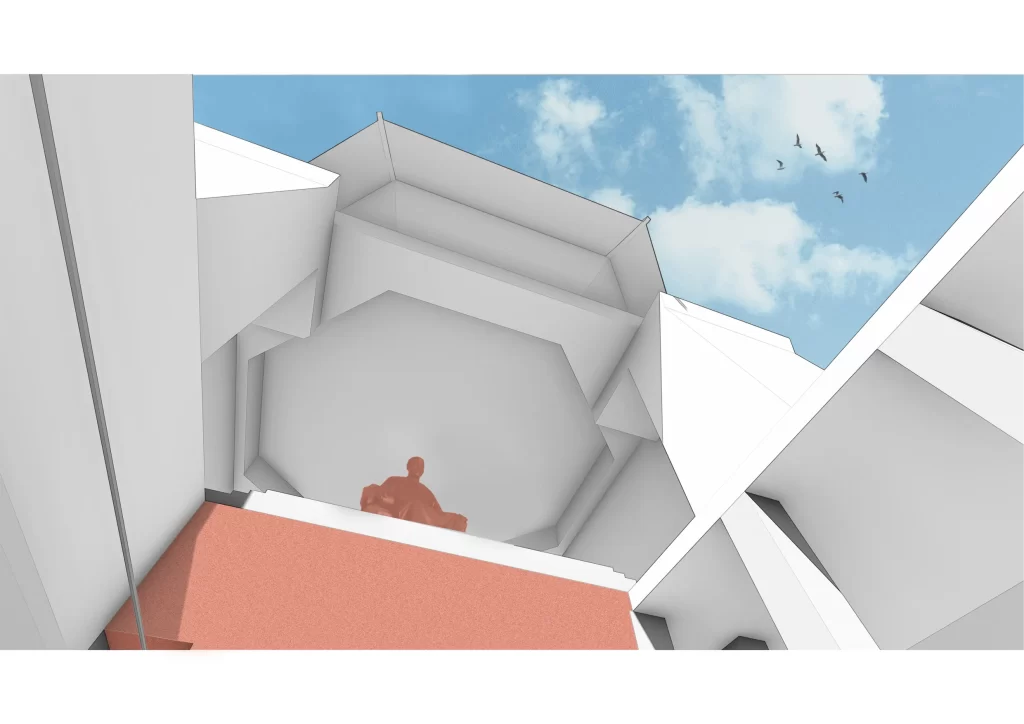
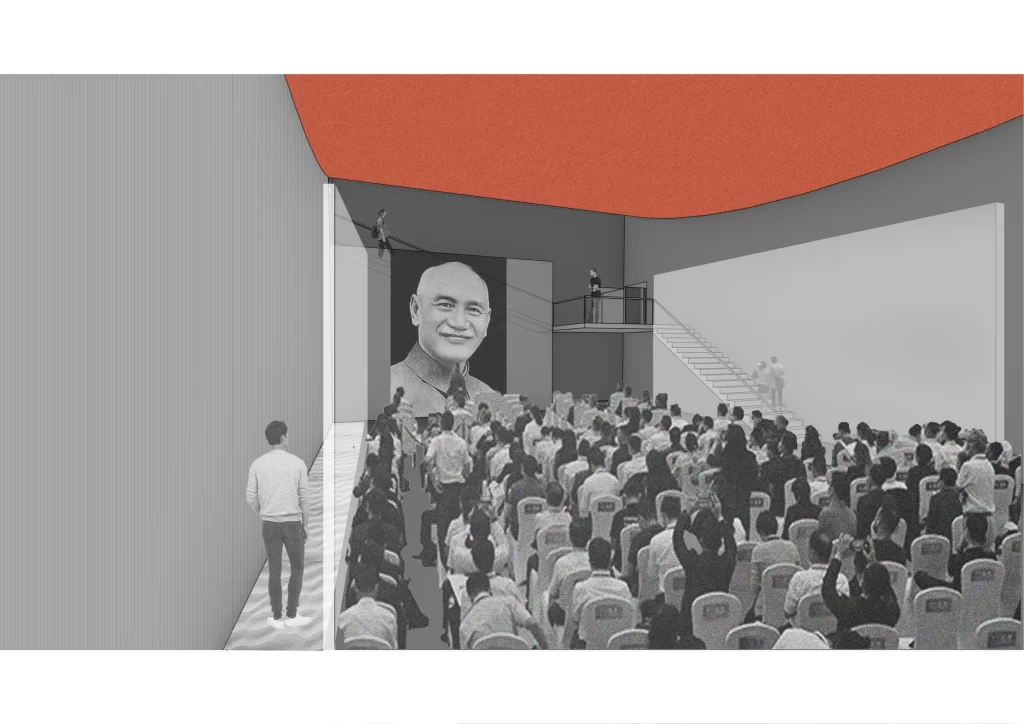
In the face of the epidemic, there have been many changes and uncertainties in public relations, and many disturbances have arisen in society, causing people to feel anxious. In fact, it is not just the epidemic, but the society, politics, and economy we are in. Various types of negative news and events that have emerged in recent years, such as the ongoing Russia-Ukraine war for almost a year, the collapse of cryptocurrency and stock markets, deeply affect the public and make people feel breathless.
The life we long for and aspire to is often the most ordinary, stable, and comfortable environment, just like air, sunlight, and water. Freedom and security are also part of it. We may not feel them when we have them, but we feel immense pain when they are taken away from us. This design for the daily life of the Chiang Kai-shek Memorial Hall area is centred around the return to normalcy. This site has great potential. It can be a city living room that welcomes everyone. People can gather, engage in activities, and share in this multifunctional space. Vibrant colours can encourage natural communication and bring smiles to people's faces. Currently, this land is used by the general public and tourists from all over the world, without a strong purpose. In the future, it is expected to be the same. After the epidemic, this site can be a place of rebirth, leading people to a more colourful and vibrant future.
This design focuses on the urban environment and user comfort. In response to the severe heat island effect in Taipei during the summer, this site serves as an important turning point in addressing this problem. By incorporating urban sunlight, solar radiation analysis, and wind flow analysis, the central plaza of the park is transformed. A multi-level green belt space is proposed to alleviate high temperatures during the day and create multi-level open landscape spaces. At the same time, the volumetric development also echoes to some extent people's aspirations and expectations for a better life.


